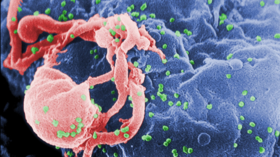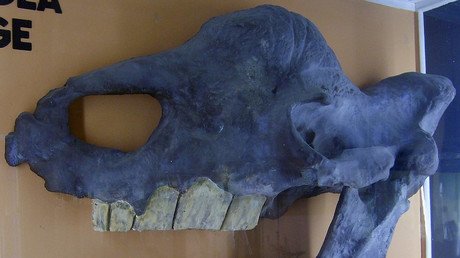HIV breakthrough: Scientists discover resistance gene in patients with muscular disease

A rare genetic mutation that causes a certain type of muscular dystrophy may prove to be the new secret weapon in the fight against HIV infection.
The mutation concerns the Transportin-3 gene (TNPO3) which plays a role in transporting the virus inside cells (hence the name). The gene was identified in a family in Spain several years ago, members of which lived with a particular kind of limb-girdle muscular dystrophy.
Health researchers in Madrid took samples of their blood and infected it with HIV. They then made a shocking, but very welcome discovery: the lymphocytes in the blood (the shock troops of the immune system) were naturally resistant to HIV.
Also on rt.com Scientists cure mice of HIV for first time in groundbreaking study using CRISPR“There are mechanisms of resistance to infection that are very poorly understood,” Jose Alcami, a virologist at the Carlos III Health Institute and co-author of a paper on the subject, said. He added that the latest discovery helps researchers better understand the transport system of the virus, but warns that much work needs to be done before a definitive cure can be found.
The latest breakthrough comes a decade after the famous ‘Berlin Patient’, Timothy Brown, became the first person cured of HIV after he underwent a bone marrow transplant from a donor with a genetic mutation of the CCR5 gene.
Think your friends would be interested? Share this story!














